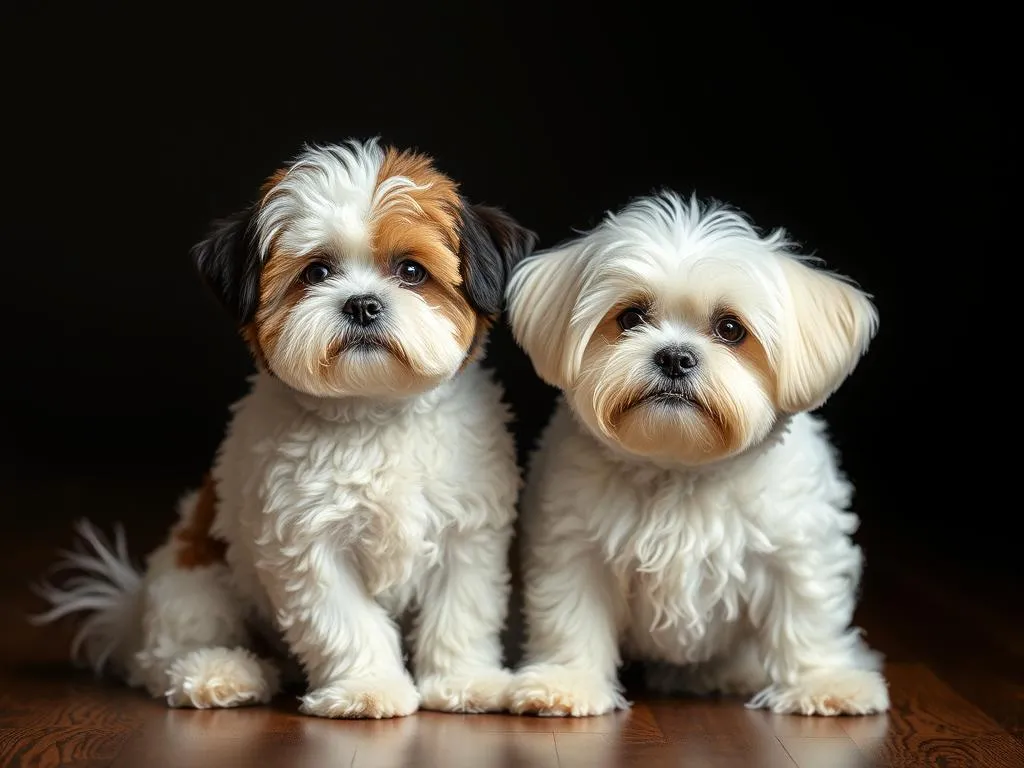
Small dog breeds have surged in popularity over recent years, captivating the hearts of dog lovers across the globe. Among these beloved companions, the Bichon Frise and Shih Tzu stand out as two favored choices. Both breeds boast charming personalities, affectionate natures, and stunning appearances. As potential owners consider which breed might be the best fit for their lifestyles, a detailed comparison can shed light on the distinct characteristics of each. Understanding breed traits, care requirements, and temperaments is crucial for making an informed decision.
Breed Overview
Bichon Frise
The Bichon Frise has a rich history that dates back to the Mediterranean region, where it was bred as a companion dog for sailors. This breed is known for its cheerful disposition and playful nature. In terms of physical characteristics, the Bichon Frise typically weighs between 10 to 20 pounds and stands about 9 to 11 inches tall. One of its most striking features is its fluffy, curly coat, which is usually white, although it may have cream or apricot markings.
The temperament of the Bichon Frise is often described as affectionate, playful, and friendly. They tend to be good with children and other pets, making them a great choice for families. Their lively spirit and eagerness to please also make them relatively easy to train.
Shih Tzu
In contrast, the Shih Tzu has its origins in ancient China, where it was bred as a royal companion. Known for its regal appearance, the Shih Tzu typically weighs between 9 to 16 pounds and stands about 9 to 10.5 inches tall. This breed features a long, flowing double coat that can come in a variety of colors, including black, white, gold, and brindle.
The Shih Tzu is known for its affectionate and loyal nature. They are often described as friendly and outgoing, but they can also display a bit of independence. Shih Tzus are typically good with children and other pets; however, their more laid-back demeanor means they may not always be as playful as the Bichon Frise.
Health and Lifespan
Common Health Issues
Both breeds are prone to specific health challenges. The Bichon Frise often faces issues such as:
- Allergies: These can manifest as skin irritations or respiratory problems.
- Dental problems: Bichon Frises are particularly susceptible to dental disease, necessitating regular dental care.
On the other hand, the Shih Tzu faces its own set of health risks, including:
- Brachycephalic issues: Due to their short muzzles, Shih Tzus can experience breathing difficulties, especially in hot weather.
- Skin problems: Their long coats can lead to skin infections if not properly groomed.
Lifespan Comparison
The average lifespan of a Bichon Frise is approximately 12 to 15 years, while the Shih Tzu typically lives around 10 to 16 years. Factors such as genetics, quality of care, and living environments can significantly influence these lifespans. Regular veterinary check-ups, a balanced diet, and proper exercise can help both breeds enjoy longer, healthier lives.
Grooming and Care
Grooming Needs
Grooming requirements for both breeds are essential for maintaining their coats and overall health. The Bichon Frise requires:
- Regular brushing: At least 2-3 times a week to prevent matting.
- Professional grooming: Every 4-6 weeks is recommended to maintain their fluffy appearance and keep the coat healthy.
The Shih Tzu also has high grooming needs, including:
- Daily brushing: To prevent tangles and mats in their long hair.
- Regular grooming appointments: Every 4-6 weeks to keep their coat manageable and clean.
General Care Requirements
Both breeds require a balanced diet to maintain their health. High-quality dog food that meets their nutritional needs is crucial.
In terms of exercise, both breeds enjoy playtime but do not require extensive physical activity. Short walks and play sessions will suffice for keeping them healthy and happy.
Training and socialization are also important. Early socialization helps both breeds develop into well-adjusted adults, while basic obedience training can make them easier to manage.
Temperament and Behavior
Sociability and Interactions
The Bichon Frise is known for being an excellent family pet. They are often very sociable and enjoy being around people, including children and other pets. Their playful nature makes them a fun addition to active households.
Conversely, the Shih Tzu tends to be affectionate yet may display a more independent streak. They enjoy companionship and are usually good with kids and other animals. However, they may not be as energetic as the Bichon Frise, preferring to relax next to their owners.
Behavioral Traits
The Bichon Frise is characterized by:
- Playfulness: They love to engage in games and activities.
- Affection: They thrive on attention and companionship.
The Shih Tzu, on the other hand, exhibits:
- Loyalty: They often form strong bonds with their families.
- Independence: They may enjoy alone time and can be a bit more reserved.
Living Environment
Both breeds adapt well to various living environments, but there are some differences.
The ideal living conditions for the Bichon Frise include:
- Apartments or homes with small yards: They are highly adaptable and do well in smaller spaces as long as they receive regular exercise and attention.
For the Shih Tzu, the ideal environment includes:
- Comfortable, cozy spaces: They thrive in quieter settings where they can snuggle and relax. However, they can also adapt to apartment living, provided they have a stable routine.
In terms of adaptability, both breeds are well-suited for apartment living, but the Bichon Frise may be slightly more energetic and playful, while the Shih Tzu may appreciate a more laid-back atmosphere.
Cost of Ownership
Initial Costs
When considering the Bichon Frise and Shih Tzu, potential owners should be aware of the initial costs associated with each breed.
The purchase price for a Bichon Frise typically ranges from $500 to $3,000, depending on the breeder and location. Initial setup costs, including supplies such as food, toys, and grooming tools, can add another $200 to $500 to the overall expense.
The Shih Tzu generally falls within a similar price range, averaging $1,000 to $1,500 for the purchase price. Initial setup costs for Shih Tzus can also range from $200 to $500.
Ongoing Expenses
Ongoing expenses can vary based on factors such as health care and grooming needs. For both breeds, typical annual costs may include:
- Food: Approximately $500-$700 per year.
- Grooming: Between $300-$600 annually, depending on grooming frequency.
- Medical care: Around $200-$500 for routine veterinary visits and vaccinations.
Over the lifespan of both breeds, potential owners should budget approximately $15,000 to $30,000 or more, depending on individual health needs and care preferences.
Conclusion
In summary, the Bichon Frise and Shih Tzu each bring unique qualities to the table. The Bichon Frise is characterized by its playful, affectionate nature and adaptability to various living environments, making it an excellent choice for active families. In contrast, the Shih Tzu offers loyalty and a more laid-back demeanor, making it suitable for those seeking a loving companion that enjoys downtime.
Choosing the right breed ultimately depends on personal lifestyle, preferences, and family dynamics. Understanding the differences and similarities between these two breeds can help potential owners make an informed decision.
Frequently Asked Questions (FAQs)
Q: Which breed is better for families with children?
A: Both the Bichon Frise and Shih Tzu are good with children, but the Bichon Frise may be slightly more playful and energetic.
Q: Do both breeds shed?
A: Both breeds are considered low-shedding; however, regular grooming is essential to maintain their coats and reduce allergens.
Q: Are these breeds prone to separation anxiety?
A: Yes, both breeds can experience separation anxiety due to their affectionate nature, so it’s important to spend quality time with them.
Q: How much exercise do they need?
A: Both breeds require moderate exercise; short daily walks and playtime are typically sufficient to keep them happy and healthy.
Q: Can they be left alone for long periods?
A: It is not advisable to leave either breed alone for extended periods, as they thrive on companionship and may become anxious.
In making a decision, potential owners are encouraged to consider adopting from shelters or breed rescues, giving a loving home to these wonderful breeds.









